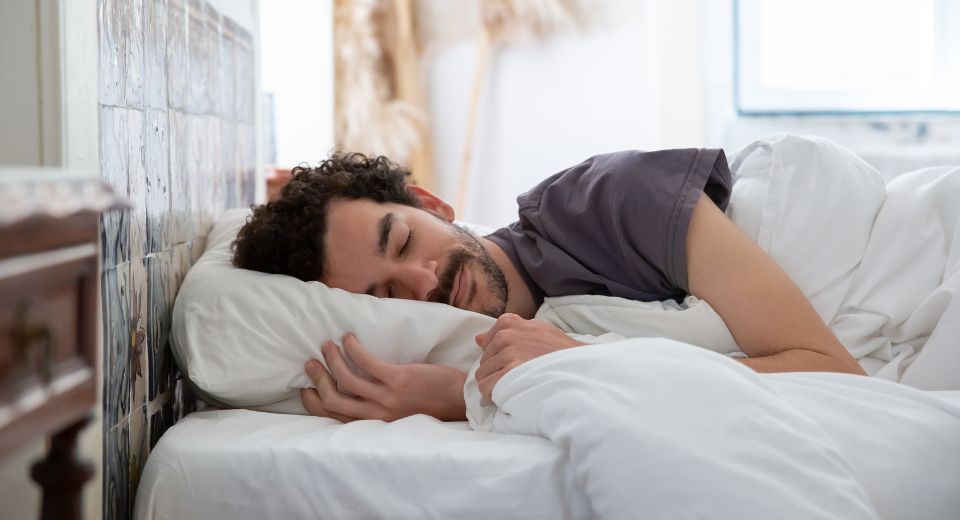When you don’t get a good night’s sleep — meaning less than 8 hours of restorative sleep — you do more harm than just creating bags under your eyes. Without those 8 hours, you are compromising the functions of every cell in your body, making it extremely difficult for you to maintain good health.
While you go through the various stages of sleep each night, your body is doing anything but resting. It’s repairing muscles and tissues damaged throughout the day, releasing hormones you need to regulate aging and appetite, storing your memories, providing energy to your brain, and boosting your energy supply.
These unconscious activities affect every aspect of your physical and mental health, and they have a tremendous impact upon your quality of life. Getting a good night’s sleep every night is not a luxury; it’s a necessity.
If any of this sounds familiar, you’ll be happy to hear that sleep problems can be solved. There are many reasons for sleep difficulties, so finding the right solution for you is key.
Here are some unexpectedly common causes of poor sleep:
1) Lack of exercise is a common cause of restless nights. I frequently see patients whose only exercise is moving between an office chair, a car seat, the couch, and bed. As a result, stress accumulates. With no outlet (exercise is an outstanding stress reliever), it quickly turns into anxiety, increased blood pressure, irritability, mood swings, and muscle aches and pains.
Too often, patients insist they have “no time” to work out, only to reveal through our discussions that they’re watching television four to six hours a day. Why not work out on a treadmill or trampoline while watching TV? I point out that a recent study determined moderately intensive walking to be the most recommended strategy for dealing with sleep difficulties. Patients who follow through on this recommendation are among the biggest success stories when it comes to conquering insomnia.
2) Certain foods you eat and drink can also lead to sleep problems. Many people are not aware of the caffeine content in non-cola sodas, foods like chocolate, or so-called “natural” energy drinks. Be sure to check ingredient
and nutrition labels. If you must have caffeine to function, try to limit intake to just the morning. Caffeine’s effects on the body last for about eight hours, so a cup of coffee after lunch could create problems at bedtime, especially for individuals who are sensitive to caffeine.
3) Medications could be another source of sleeplessness. If you’re on a medication and having trouble sleeping, check with your physician to find out if insomnia could be a possible drug side effect. Each individual reacts differently to medication, so even if you know other people who are taking the same prescription and sleeping well, the medication could still be a problem for you.
4) Alcohol can be a culprit, as well. The notion that having a drink in the evening encourages relaxation or sleep is actually misleading. One drink may be soothing, but even that small amount can translate into trouble sleeping. In fact, a new clinical trial from Japan found that even a single drink of alcohol interrupts sleep in several ways, including interfering with the restorative functions that are so important to a fully functioning, healthy body. And those effects become more intense with increasing amounts of alcohol.
Maintain Your Body’s Natural Rhythm
In a culture of 24/7 everything, it’s easy to overlook the fact that our bodies are designed to be active in daylight and rest when it’s dark. This practice allows the pineal gland to produce melatonin, a vitally important hormone that has an important connection to sleep. Without sufficient supplies of melatonin, sleep problems are likely to develop.
Melatonin production is highest between the hours of 10 p.m. and 2 a.m. But that only happens if you’re asleep in a dark room. If you don’t go to bed until 1 a.m., or nod off with the television on, getting eight hours of sleep is not going to make up for the fact that you’ve missed the prime melatonin-producing portion of the night. In other words, the phrase “early to bed, early to rise” popularized by Benjamin Franklin is actually very good advice!
Personally, I notice a big difference the next day if I get to bed late. It takes longer to get going in the morning and I often feel “out of sync” throughout the day. So I make it a habit to be in bed, ready to sleep, by 10 p.m. every evening. If you’re not in the same habit, I think you’ll be pleasantly surprised by how well this simple tactic works.
Supplement Solutions
Magnesium deficiencies are quite common among those who eat the Standard American Diet (SAD). Yet magnesium is an important mineral for relieving sleep-destroying conditions like restless leg syndrome, anxiety, and tense muscles. A combination of minerals (225 mg magnesium and 11.25 mg zinc) and the sleep-related hormone melatonin (5 mg) was tested recently on a group of participants suffering from insomnia. After two months, researchers compared the results of the melatonin/mineral combination with a placebo (a non-active sugar pill) and found the magnesium/melatonin group had considerably better results in all areas related to sleep, including falling and staying asleep, and feeling refreshed in the morning.
In fact, melatonin is a well-known, naturally occurring hormone that is directly connected with falling and staying asleep. Our bodies do produce melatonin on their own, but as we age, production decreases. By taking a melatonin supplement before bed, many of my patients find their sleep problems significantly lessened.
Over the years, I’ve found that the bulk of melatonin products on the market have one significant drawback. Because your body metabolizes through standard melatonin formulations within three to four hours after taking them, when you take many of these products, you wind up wide awake at 2 or 3 in the morning when they wear off.
So if you are planning to take a melatonin supplement, make sure it is an extended release formula if you have difficulty staying asleep. On the other hand, if you have difficulty falling asleep, a fast release would work better for you. Also, if you are on melatonin make sure you give your body a break for one week in a month so you do not suppress your own production.







